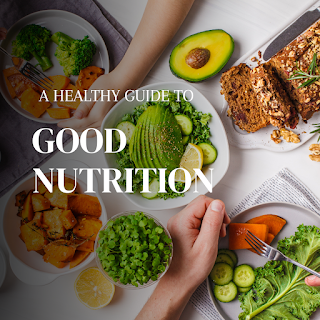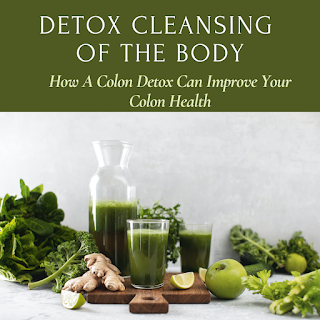There's no easier way to add a dose of nutrition to your day than by crunching on a tasty apple. You probably first experienced its delightful flavor as a baby, when applesauce introduced you to real food. And now, whether it's a Granny Smith, a McIntosh, or a Red Delicious, you think of apples as old friends. Grown throughout the world, apples are high in fiber, vitamins, minerals, and antioxidants. They're fat-free, cholesterol-free, and low in sodium. In short, eating apples is a smart part of a healthy lifestyle.
6 ways apples keep you healthy
1. Regulates your day.
You don't have to worry about staying regular anymore. Whether your problem is visiting the bathroom too often or not often enough, apples can help.
A British researcher, Dr. D.P Burkitt, believes one of the easiest ways to prevent all sorts of illnesses, is to avoid constipation. He calls the diseases caused by chronic constipation "pressure diseases." Appendicitis, diverticular diseases, hemorrhoids, hiatal hernias, and even varicose veins can all be caused by straining to pass small, hard stools.
Just one apple with its skin contains 4 to 5 grams of fiber - the most important nutrient in keeping your bowels working like a well-oiled machine. Keeping yourself regular without relying on harmful laxatives could be as easy as replacing that afternoon snack of potato chips or cookies with a crisp, delicious apple. And think of the calories you'll save. The average apple has about 80 calories while a serving of chips weighs in at 150 calories and you'll get about 200 from just a few cookies.
But that's not all apples can do. They're also good for diarrhea, thanks to an ingredient called pectin. This carbohydrate has a congealing effect in your intestines that helps firm things up and return you to normal. Applesauce is actually the best apple product for diarrhea, since it's made without the high.-fiber skin. But watch out for extra sugar. Some brands of applesauce dump a truckload of sweeteners into an otherwise healthy food, and too much refined sugar could make your diarrhea worse.
2. Keeps your body young.
By now you know antioxidants can protect you from many of the diseases that seem to be a part of aging. In fact, so many people are taking supplements for antioxidant protection that it's become a multibillion-dollar industry. But the evidence is mounting that whole foods can do more for you than pills.
When scientists compared a 1,500-milligram vitamin C supplement to one small apple, the results were astounding - the antioxidant values were equal. That means a fresh apple has more than 15 times the antioxidant power of the recommended daily dose of vitamin C. And that's just for starters. The researchers also found an ordinary apple was able to stop the growth of colon and liver cancer cells in test tubes. Unpeeled apples were especially effective. The question you need to ask yourself: Why waste money on flavorless supplements when you can get better antioxidant firepower from a sweet, crunchy fruit?
3. Cuts your risk of heart disease.
Sometimes it's hard to remember which food is good for which part of your body. The next time you pick up an apple, examine it carefully. It's shaped a bit like a heart - and that should help you remember apples are good for your heart.
It's the magnesium and potassium in apples that help regulate your blood pressure and keep your heart beating steadily, and it's the flavonoid quercetin, a naturally occurring antioxidant, that protects your artery walls from damage and keeps your blood flowing smoothly.
In fact, adding flavonoid-rich foods like apples to your diet has been scientifically confirmed to lower your risk of heart disease. There's proof of this in a study of Japanese women who ate foods high in quercetin. They were less likely to get coronary heart disease than other women and they had lower levels of total and LDL, or bad, cholesterol.
4. Strikes at the heart of strokes.
Apples are even a smart choice for helping avoid strokes. Scientists aren't sure which ingredient in this multi-talented fruit to credit, but the connection is clear - people who regularly eat apples are less likely to have strokes than people who don't.
5. Protects your joints.
In areas of the world where fruits and vegetables make up a large part of the diet, very few people get arthritis. Compare this to modernized countries where fruits and vegetables have been replaced with fast, processed food and you'll find up to 70 percent of the population suffers from some form of arthritis. Just a coincidence? Not according to nutrition experts. They link this trend in part to boron, a trace mineral many plants, including apples, absorb from the soil.
If you eat like most people, you'll get about 1 to 2 milligrams (mg) of boron a day, mostly from non-citrus fruits, leafy vegetables, and nuts. Experts believe, however, you need anywhere from 3 to 10 mg a day to affect your risk of arthritis. To boost your boron intake to this level, you'd have to eat more than nine apples a day.
This is probably an unreasonable amount for most people, but don't despair. Pair an apple with other boron-rich foods like a few tablespoons of peanut butter and a large handful of raisins, and you'll not only have a delicious afternoon snack, but you'll make your joint-saving quota of boron at the same time.
6. Helps you breathe deeply.
Your lungs are assaulted every day by cigarette smoke, air pollution, pollen, and other air-borne nasties.
Perhaps you suffer from asthma, emphysema, or similar lung condition. If all you want to do is take a deep breath, then grab an apple.
A five-year study of more than 2,500 men from Wales found those who ate five or more apples per week were able to fill their lungs with more air than men who didn't eat apples. Experts believe you might be getting some special protection from the antioxidant quercetin. Unfortunately, eating apples can't reverse a lung condition you already have, but you just might add a new line of defense against further damage.
Bonus tip for your pantry
Buy apples that are unbruised, firm, and have good color. Take them out of their plastic bag and store them in your refrigerator - loose in the produce bin or in a paper bag is best. And since they will absorb odors, keep them away from strong-smelling foods like garlic and onions.

.png)
.png)
.png)
.png)
.png)



.png)

.png)
.png)

.png)
.png)